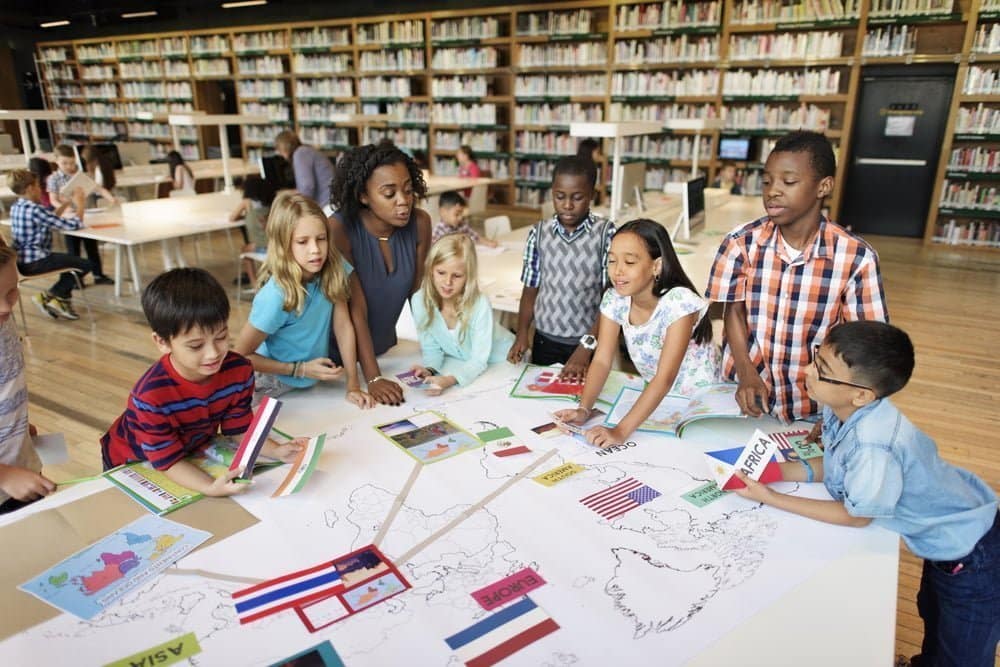Between 2010 and 2019, children were victims of hate crimes more often than the general population. But on top of this, racism doesn’t need to take the form of hate crimes to cause serious negative impacts. The American Academy of Pediatrics has identified racism as a social determinant of health that has negative outcomes on the health and well-being of children. To reverse those outcomes, children must be given tools to develop a positive self-identity and build survival skills in an increasingly hostile society.
Unfortunately, across the United States, more and more states are criminalizing education by instituting book bans and educational gag orders that would remove essential historical and cultural context from the curriculum. Not only must we reverse these bans, but—given the rising threats to children’s psychological and physical health—we have a collective responsibility to include scientifically-backed practices in our pedagogy that will instill resilience against fear and ignorance.
The Academy points to internalized racism as posing a “direct threat to the emotional health, racial self-identity, and self-esteem of Black children.” This is a clear and present danger, as 90 percent of Black children and adults report having experienced racist encounters. Even the secondhand impact of witnessing the chronic violence against Black people can have a traumatic impact. Unfortunately, none of these circumstances are new to Black families.
Parents of Black children find that they must equip their children with tools and mechanisms in preparation for bias through a process called racial socialization. Social scientists have long identified some key parenting tools Black families use to protect their children from the harmful psychological impacts of racist encounters.
The American Psychological Association describes racial socialization as “the way in which parents teach their youth how to navigate the often contradictory messages or teach them what it means to be Black.” Social psychologists have found that this process often entails a few core components: cultural socialization (which includes celebrating racial or ethnic heritage and cultural traditions) and the preparation for bias—both of which “anti-woke” legislatures seek to dismantle.
As young as five and six, Black children begin noticing and expecting white people to have better possessions and jobs. Without an understanding of the systemic racism they live in, Black children internalize racist messages to the detriment of their self-image and health. When children experience the illogical impact of racist harm, without racial socialization, they may think it’s a result of who they are, instead of the system they’re in, damaging their self-image.
READ: Being ‘Woke’ to Racial Injustices in The United States Has a Long History
As parents and caregivers, we may not feel comfortable with every concept the books in our children’s library hold. We may take offense with the language an author uses. The material may challenge our long-held beliefs. But discomfort is a poor reason to limit true and accurate information from our educational systems, especially when the American Medical Association has identified racism as a public health risk. To date, white discomfort has not been identified as such.
The United States’s long history of racism and discrimination still impacts our present differences in success. How do we explain the differences in racial educational achievement gaps, lifetime wealth accumulation, and mortality rates when we are forced to ignore systematic and historical barriers to education, jobs, and housing? In the absence of giving our children real explanations, there are a plethora of racist explanations to fill the vacuum.
When we don’t prepare Black children through racial socialization, they will come to rely on the racist explanations that are readily available in our society, internalizing the shame that lies in the foundations of this nation. Fighting back against book bans is a start. Still, as long as elected and school officials are making decisions based on white supremacist fears rather than historical facts, it’s up to everyone who cares about the health of our children to supplement their education by understanding the impact of racism and helping them practice skills to build resilience.
This article was originally published in The Progressive and reprinted here with permission.






